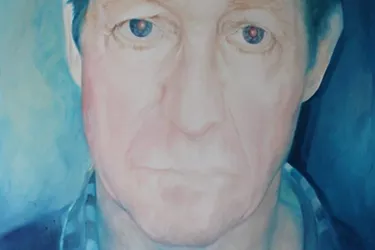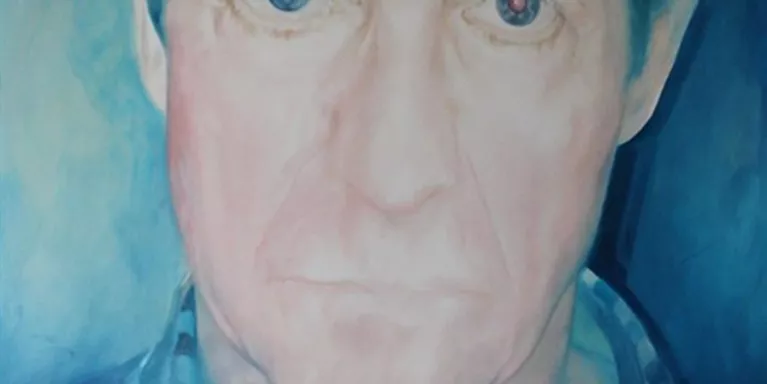Being a Mind member helped me win my battle for survival
Alice blogs about how getting involved with Mind helped her speak up and gave her power over her depression.
“My lungs want to live but my brain wants to die”. I wrote these words in a journal in 2019, the year I had to fight for my life. Because I was battling severe depression and suicidal urges. It was a fight I did not think I would win, but I did - I survived, and being a member of Mind helped me in that battle for survival.
Wanting to fight
My brain is an organ like any other. When it gives up, the body can’t live then either. There was no miraculous change when things got better, but eventually I stopped thinking about dying every day and some will in me was gradually rekindled. I’m afraid every day of it coming back, because depression has come for me before. There are parts of my brain that would force me to wallow in this – parts that if I listened to, I would never get up again. But there are other parts that want to fight, and part of fighting for me is speaking up and using my words to make a difference.
At the end of 2019, trying to find something to bring me back from the brink, I decided to get involved in the work of Mind. I signed up to volunteer for my local Mind and I joined Mind’s membership. I didn’t know why I needed to do it, I just did. It was something with no end goal; no further purpose than this is something I want to do, so I’ll do it.
In helping Mind, I realised things about myself that I had lost. Things that I had always known but had forgotten in the depths of mental ill health. I had power. I am a person. I can share my experiences. I can write. So I sat down and I wrote. And the crazy thing was people cared about what I wrote. They related to it, they learnt something, or it reached something in them.
It was also doing the very opposite of what my brain, my depression, told me to do: hide away, withdraw, and never mention what goes on in your head. Speaking up gave me power over my depression.
In helping Mind, I realised things about myself that I had lost. I had power. I am a person. I can write.
So when thinking about recovery I realised that being yourself in this world is the bravest thing to do. We might share similarities, there might be things that we all find helpful, but in the detail that’s all you.
There are times when I cannot face talking to someone on the phone, so I’ll text instead.
When you’re mentally unwell and people suggest things like the “five ways to wellbeing” the key is how you tailor it to your needs. A standardised five ways to wellbeing probably won’t work, but if you adapt it to who you are, what you like and your needs it just might make a difference. Your five ways to wellbeing will be different to mine, but here are some things to think about when finding your own way of building the ways to wellbeing into your life.
- Expressing yourself comes in so many different forms; don’t limit it by thinking you’re not creative.
- Giving is different too - make sure it’s something that you believe in, something you know is right for you, not something you think you ought to do.
- Being active can feel like a pressure – for example being told running is good for you. It shouldn’t feel like a pressure though. Being active can be any form you like; it can be dancing around at home - it is. put simply. using that body of yours anyway you like.
- Keep learning. This for me has been key. Learning is a part of having purpose. That is what bad mental health can take from you. Again, don’t get defined by school or work. Just ask yourself what do I want to know more about, what have I always wanted to learn?
- Finally reach out to people – but find the right balance, there are times when I cannot face talking to someone on the phone, so I’ll text instead. Be kind to yourself, match where you are and make compromises.
With all of these ways to wellbeing the most important approach to take is to problem-solve. If you don’t want to do something one way, try coming up with something more manageable.
Being part of change
Being a Mind member gave me a positive place to channel some of the frustration I felt at the mental health system, and a place to make sense of some of the journey I had been through.
I want things to change. I want more support for people struggling, I want fewer waiting lists, and better trained professionals. I want to feel like I don’t have to exaggerate symptoms just to get help, or to have to explain some of the worst of my experiences to people who don’t understood or in some instances even care. All this has to change, and Mind helps me be a part of that battle for myself and for others.
I have always got a lot from reading about others’ experiences and being able to share my own in the Mind Membership News magazine. I think that a big part of change is speaking out. Voicing our experiences is so powerful. Mind has always felt like it puts the lived experience first and recognises that we know the most about what mental ill health is like and the kind of support there needs to be out there. I can’t tell you how invaluable that is.
Being a Mind member means being part of a legacy of change. It means learning from others and ourselves. Getting help was not easy. Negotiating the mental health system when you are extremely unwell is almost impossible without people fighting in your corner. This needs to change. I want to be part of the change and with Mind I feel I can.


Information and support
When you’re living with a mental health problem, or supporting someone who is, having access to the right information - about a condition, treatment options, or practical issues - is vital. Visit our information pages to find out more.
Share your story with others
Blogs and stories can show that people with mental health problems are cared about, understood and listened to. We can use it to challenge the status quo and change attitudes.

















